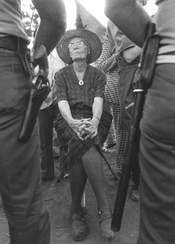As the visions during the night continued, I saw one like a son of man coming, on the clouds of heaven; When he reached the Ancient One and was presented before him, he received dominion, glory, and kingship; nations and peoples of every language serve him. His dominion is an everlasting dominion that shall not be taken away, his kingship shall not be destroyed. (Daniel 7:13-14)
Jesus told his disciples a parable. “Consider the fig tree and all the other trees. When their buds burst open, you see for yourselves and know that summer is now near; in the same way, when you see these things happening, know that the Kingdom of God is near.” (Luke 21:29-31)
Piety
Lord, in the midst of the hustle and bustle of this holiday season, help us to remember there wouldn’t be any reason to celebrate if not for your presence in our midst.
Study
Here we are with only one more day left in the liturgical year. On Sunday Advent begins. The readings at the end of the year are frequent warnings – be ready, read the signs, etc. My mother used to say that she didn’t like the Scripture readings at this time of year. They were frightening and full of doom and gloom.
Today’s readings, however, sound hopeful notes to me. At a first glance, the reading from the Book of Daniel might seem unintelligible, with elaborately descriptive visions of strange beasts. In the commentary on this passage in Living Space (published by the Irish Jesuits in conjunction with Sacred Space), the beasts are said to represent the various powers of the ancient Near East which had risen up at one time or another to rule over God’s people – the Babylonians, the Medes, the Persians and the Greeks.
The visions don’t end there. Daniel goes on to see the “Ancient One,” or God. At the end of today’s verses, we read that one like a son of man comes on the clouds of heaven and is presented before God. This son of man receives dominion, power, and glory. His dominion is said to be forever. Nothing shall destroy his reign as King. Daniel had no idea who this son of man was, but you and I know he is Jesus Christ. The hope comes from knowing that nothing that troubles us in this world, whether ancient conquerors or other present-day sufferings, lasts forever. God alone is forever. That’s the truth to hold onto as the year draws to a close.
After the earlier parts of chapter 21 in Luke’s Gospel, where Jesus foretells the destruction of the temple and Jerusalem, alludes to all the calamities that will come to pass before he returns in glory, and promises that his followers will be persecuted for their faith, we have this quiet mention of a budding fig tree. When we see the buds opening and the blooms beginning to show, Jesus says we know it is a sign of summer’s approach. There’s nothing earth-shattering about this image. Trees quietly put forth buds and blooms every year. No fanfare. And maybe that’s the way we should approach Advent, quietly doing what we should always be doing – praying and showing mercy and compassion toward others as we wait in hope for the joy of the fullness of time.
Action
Here at the end of the church year, we have the opportunity to ask ourselves which calendar guides the rhythm of our days – the liturgical calendar or the secular calendar. I can imagine a number of people reading these Scripture passages or this Daily Tripod and wondering who has time for this. There are fewer than 30 shopping days left before Christmas! There are trees to be trimmed, cookies to be baked, gifts to be wrapped! But put it all in perspective. All that will be over in a few weeks. Jesus, however, will still be our Savior on December 26 and forever beyond that. Maybe the liturgical calendar is worth another look.




